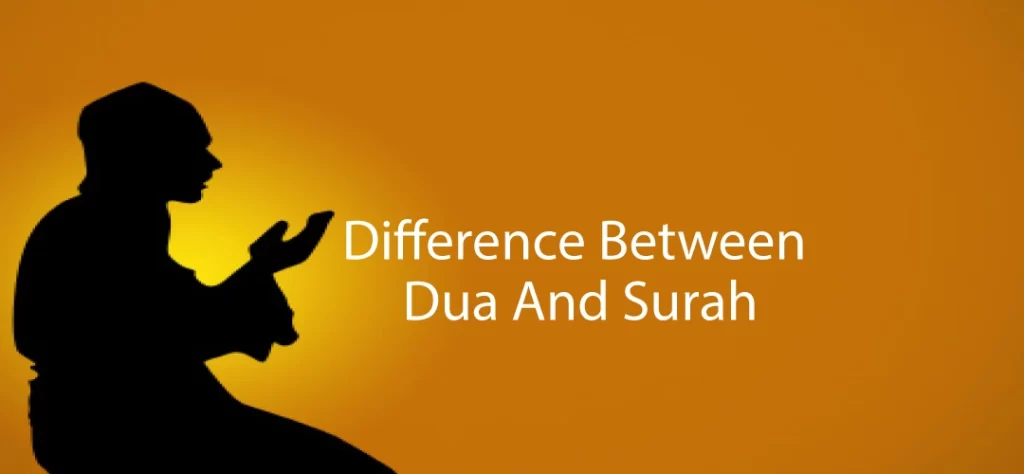The Arabic words dua and surah have diverse meanings. Is there a difference between Dua and Surah? You will understand the specific definitions of the surah and dua in this article.
In Islam, dua and surah both are significant. Dua and surah vary from one another in several fundamental ways.
Dua Definition | What is Dua?
In Arabic, the term ‘dua’ signifies a plea or a modest request. It is, in other terms, a request to Allah. Dua is in reality a kind of worship. Muslims solely pray to Allah.
To achieve the intended result, the prayer is offered in a certain way based on the capability of the individual.
Surah Definition | What is surah?
In the Quran, a surah corresponds to a ‘chapter’. In the 114 surahs and ayahs that make up the Quran. The length of each surah varies; the shortest includes only 3 verses, whereas the longest has 286.
In Islam, the word ‘surah’ denotes a “sign” or “revelation”. It is called after a memorable phrase or idea from the Quran.
What is the difference between Dua and Surah?
The specific differences between dua and surah are discussed below.
1. Dua is a supplication for your desires
Your dua requests legitimacy is affected by a number of variables. If you can address a specific request, Allah (SWT) would certainly grant it. Since He is a kind and mighty God.
2. Dua can be made in any condition
Instead of the surah, dua can be made at any time and any place. It is less difficult to do than other types of worship. Because, dua can be done in every language, at any moment, and under all circumstances.
3. Allah (SWT) addresses his devotees in the surah, and the believers address Allah in dua
The main difference between Surah and Dua is that a believer and Allah speak to one another through a dua. When confronted with a trying circumstance, the Muslim makes a dua. While in surah Allah addresses His followers and talks with them.
4. Dua is shorter rather than surah
Longer prayers are known as surahs. A long, drawn-out Arabic verse known as a surah conveys a lengthy, in-depth word from Allah. While in order to seek Allah’s assistance and benefit, duas are frequently used in prayers.
5. Dua Requires Patience
When you make a dua, then you must have to be patient until the acceptance. Allah will not hear your dua if your heart is impure. So, be patient when you make a dua for your desire.
6. Surah is a comprehensive message from Allah
The Surah outlines the fundamental ideas of Islam and is a thorough divine communication to his Prophet (PBUH). It also highlights the value of patience, a key Islamic principle.
Its topics cover everything from the penalty of sinners in Hell to the rewards of followers in Paradise.
7. Each Sura has a theme
Surah highlights the significance of the Prophet’s purpose. And the difficulty they underwent to share the truth by mentioning several prophets and excerpts from their biographies.
8. Recitation of surahs in prayers
The standing sections of Muslim prayers, known as Qiyam, involve reciting surahs (chapters). Like every prayer, the unit begins with the recitation of Surah Al-Fatiha, the opening chapter of the Quran.
9. Closeness with Allah in making dua
When you make dua, Allah is very close to you because you only supplicate to Him. And dua can change your destiny. While surahs give you a message of Allah and on reciting you will surely get a reward.
10. Surah is in Arabic
Surahs in the Quran are revealed in Arabic so we must recite them in the way they are revealed. While dua can be made in any language which is the conversation between the supplicant and Allah.
Hopefully above dua and surah difference should be helpful for you in accordance with islam.
Conclusion
In summary, The dua and Surahs are other terms for prayers and are the most crucial element in a Muslim’s arsenal. The difference between Dua and Surah is discussed above.
Although, surahs are in Arabic. We are allowed to offer dua to Allah in the language which comes to us naturally.
